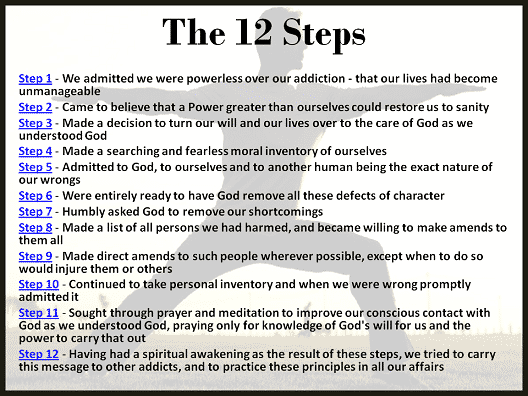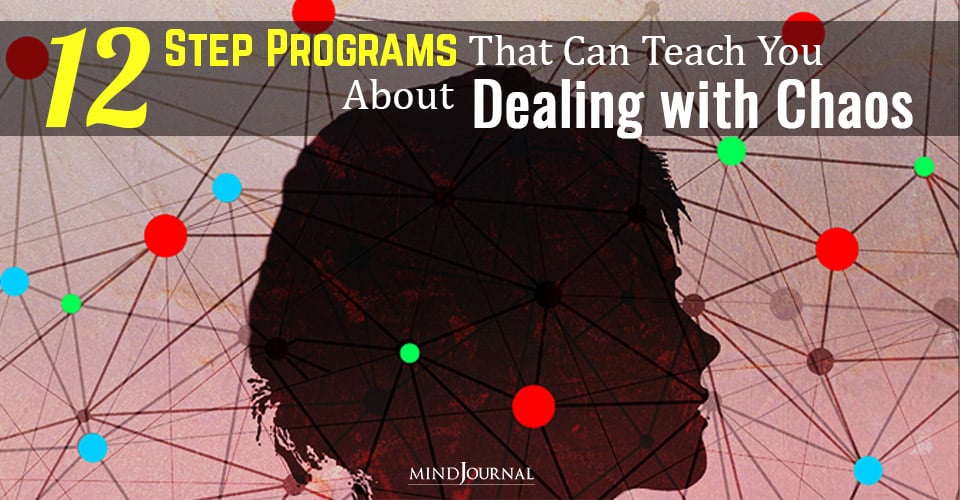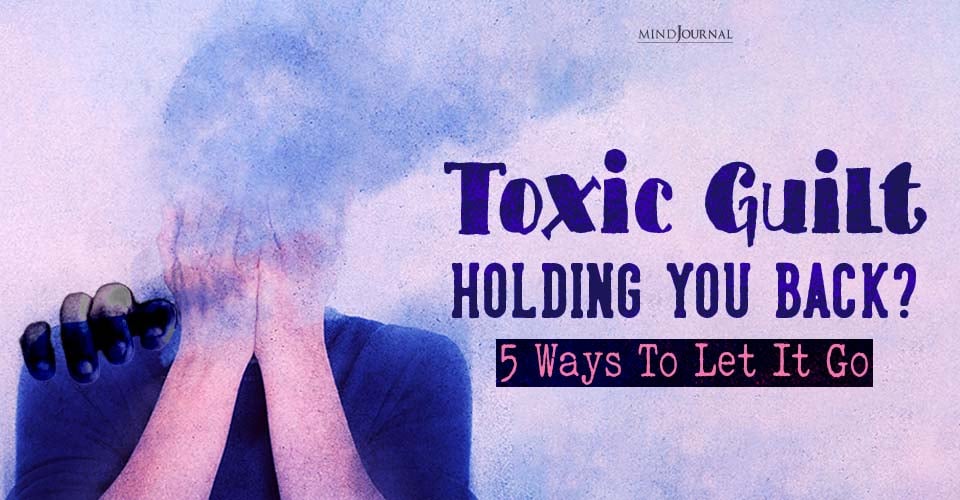12 Step Programs are not just helpful and effective for recovering alcoholics and addicts, their ideologies and lessons can help you a lot too, when it comes to dealing with chaos in your life.
Twelve-step programs have helped millions of adults who felt like their life was spinning out of control. Even if you’re not addicted to alcohol or gambling, their philosophy may help you when external events make your situation seem unmanageable.
Maybe your life has been disrupted by health issues or job loss. Maybe your relationships are strained, or you’re isolated from others. Your wellbeing depends on how you respond to challenging situations.
Take a closer look at twelve-step programs and the lessons they contain. You’ll find wisdom that you can apply to any kind of hardship.

Here Is How 12 Step Programs Can Help You Deal With Chaos
Face Reality:
1. Know yourself.
Personal development starts with taking an honest look at yourself. Evaluate your strengths and the areas where you need to grow. Appreciate your potential and define what an authentic life means for you.
2. Acknowledge obstacles.
You might think that denial can protect you from difficult truths. However, what it really does is hold you back from making positive changes.
3. Take action.
You have to take practical steps if you want to fulfill your goals. Figure out your motivation and put your ideas into motion.
Related: 5 Tips For Managing Your Depression Amidst All The Chaos
Connect with Others:
1. Ask for help.
Let your family and friends know how they can support you. Recognizing your limits is a sign of strength rather than weakness. You can accomplish more when you’re willing to collaborate with others.
2. Give generously.
Deepen your relationships and build your self-esteem by sharing your time, talents, and other resources. As a bonus, your own troubles will probably seem less overwhelming.
3. Take risks.
If you want to experience being known and understood, it’s important to allow yourself to be vulnerable. Talk about your thoughts and feelings. Give others the opportunity to do the same.

Live One Day at a Time:
1. Be mindful. Focus on the present moment.
Give your full attention to one task at a time. Savor the ordinary moments in life like playing with your children and listening to the rain fall.
2. Care for yourself.
Adopt daily habits that nourish your physical and mental health. Eat a balanced diet and exercise regularly. Aim for at least 7 hours of high-quality sleep each night.
3. Start small.
Break big undertakings down into simpler steps. Set intermediate goals. Each victory will inspire you to keep trying.
4. Accept uncertainty.
It’s natural to feel uncomfortable when you’re in unfamiliar territory. At the same time, change is inevitable. Focus your efforts on the areas where you can have the most impact. Think about what you have to gain.
Related: 3 Ways To Find Contentment In The Midst Of Chaos
Practice Spirituality:
1. Clarify your values.
Religion or spirituality plays a major role in twelve-step programs. Examine your core beliefs. Ask yourself if they’re limiting you or encouraging you to grow. Regardless of your age, you can set a new course.
2. Find meaning.
Challenging times can be a great opportunity to discover your life purpose and sort out your priorities. Think about the legacy you want to create and what inspires you to keep going. Remember that your purpose may evolve over time.
3. Meditate and pray.
Your spiritual muscles need conditioning the same as your physical ones. Train them with daily rituals. Read inspirational texts. Experiment with meditation and prayer techniques that align with your personal faith.
4. Join a community.
Many believers find that gathering together amplifies their power and generates support. Visit local faith communities that interest you or attend services online.
Even when you’re surrounded by chaos, you can take responsibility for yourself and move forward. Be open to learning from twelve-step programs and other resources that can teach you to be stronger and more compassionate.
Sherry Gaba, LCSW is also the author of Love Smacked: How to Stop the Cycle of Relationship Addiction and Codependency to find Everlasting Love and Wake Up Recovery for Codependents.
Written By Sherry Gaba Originally Appeared In Sherry Gaba










Leave a Reply